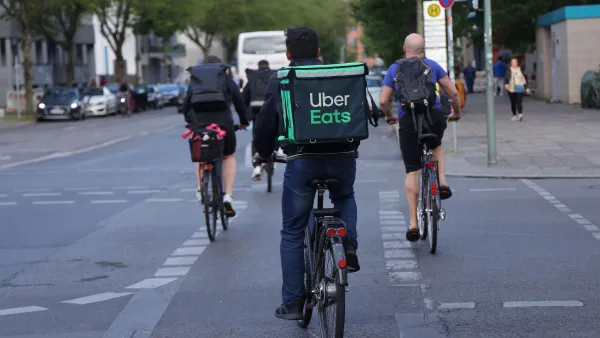Dive Brief:
- The San Francisco Board of Supervisors passed an ordinance Tuesday exempting companies from the city’s 15% delivery fee cap if said companies offer restaurants and other clients a “core delivery service” that costs 15% or less than the price of an online order. The ordinance, according to the San Francisco Board of Supervisors’ website, has been sent to the mayor’s office for approval.
- Changes to the fee cap law will take effect on Jan. 31, 2023, and Companies have until Dec. 1 to inform restaurants of changes to fee structure and pricing options.
- Grubhub, which sued San Francisco alongside DoorDash after the Board of Supervisors made the 15% fee cap permanent in June 2021, said in an email to Restaurant Dive it would drop its lawsuit once the ordinance takes effect.
Dive Insight:
San Francisco is one of a handful of jurisdictions, including New York City, to permanently restrict delivery fee caps through legislative means.
Uber Eats and DoorDash have both adopted tiered pricing models, with the lowest end of services available for a commission fee of around 15% of an order’s cost. San Francisco’s new law, represents a political victory for delivery companies and tiered pricing models. The legislation will allow delivery companies to charge restaurants more than 15% of an order price if restaurants opt for additional services.
“Restaurants need more choices, not fewer, and this solution preserves their ability to opt into important services including marketing, advertising, consulting and delivery,” Grubhub said.
Delivery companies and authorities in major restaurant markets have continued to spar over fee caps, worker protections and restaurant delivery contracts. In June, a Massachusetts court scrapped a ballot initiative backed by major delivery providers for changing disparate elements of state law. Washington, D.C. Attorney General Karl Racine sued Grubhub in March, alleging the company offered delivery from restaurants without their consent and misrepresented fees charged to consumers.
Last September, delivery companies filed a suit against New York City’s permanent fee cap. Then in August, a California judge overturned Proposition 22 — a ballot initiative barring gig workers from unionizing and classifying them as independent contractors — because it violated the state’s constitution, per his ruling.














